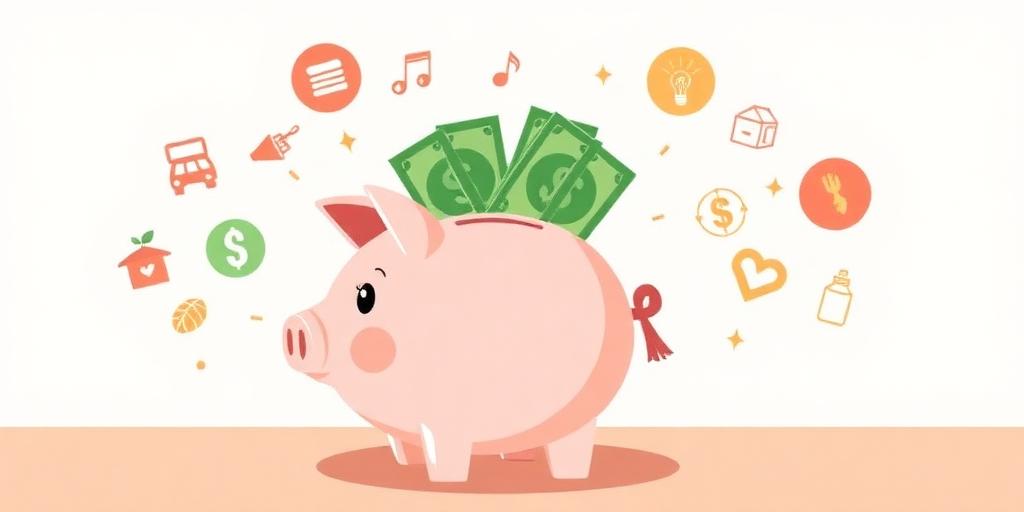20 Frugal Habits That Can Save You Thousands
In today's economic landscape, adopting frugal habits isn't just a lifestyle choice; it's a strategic financial move. Implementing these 20 habits can collectively save you thousands of dollars annually, enhancing your financial stability and future prospects.
1. Create a Detailed Budget
The cornerstone of frugality is understanding where your money goes. Use budgeting apps or spreadsheets to track income and expenses meticulously. A budget provides a clear overview, highlighting areas where you can cut back.
2. Automate Savings
Set up automatic transfers from your checking account to your savings account each payday. Treating savings as a non-negotiable bill ensures consistent financial growth.
3. Cook at Home More Often
Dining out is a significant expense. Cooking at home, even just a few more times a week, can lead to substantial savings. Plan your meals and shop with a list to avoid impulse purchases.
4. Embrace Meal Planning
Planning your meals for the week reduces food waste and the temptation to order takeout. This also saves time and reduces stress during busy weekdays.
5. Buy in Bulk (Strategically)
Non-perishable items like rice, pasta, and cleaning supplies are often cheaper when bought in bulk. However, ensure you'll use the items before they expire to avoid waste.
6. Utilize Coupons and Discounts
Before making any purchase, search for coupons, discounts, or promotional codes online. Sign up for newsletters from your favorite stores to receive exclusive deals.
7. Shop Around for Insurance
Regularly compare insurance quotes for auto, home, and life policies. Switching providers can often result in significant savings without compromising coverage.
8. Negotiate Bills
Don't hesitate to negotiate bills such as internet, cable, and phone services. Many companies are willing to offer discounts to retain customers.
9. Reduce Energy Consumption
Lower your energy bills by turning off lights when leaving a room, using energy-efficient appliances, and adjusting your thermostat. Small changes can make a big difference.
10. DIY Home Repairs
Tackle minor home repairs yourself instead of hiring a professional. YouTube tutorials can guide you through tasks like fixing a leaky faucet or painting a room.
11. Cut Unused Subscriptions
Review your subscriptions and cancel those you no longer use or need. This includes streaming services, gym memberships, and magazine subscriptions.
12. Borrow or Rent Instead of Buy
For items you only need occasionally, consider borrowing from friends or renting instead of buying. This applies to tools, equipment, and even formal attire.
13. Embrace Free Entertainment
Take advantage of free entertainment options such as parks, libraries, and community events. Many cities offer free concerts, festivals, and outdoor activities.
14. Use Public Transportation or Carpool
Reduce transportation costs by using public transportation, carpooling, or biking. This also reduces wear and tear on your vehicle.
15. Buy Used or Refurbished Items
Consider buying used or refurbished electronics, furniture, and books. These items are often significantly cheaper than new ones and come with warranties.
16. Brew Coffee at Home
A daily coffee shop visit can add up quickly. Brew your own coffee at home to save money without sacrificing your caffeine fix.
17. Pack Your Lunch
Bringing lunch to work or school can save you a considerable amount each week. Prepare meals in advance and pack them in reusable containers.
18. Avoid Impulse Purchases
Before buying something, ask yourself if you really need it. Wait 24 hours before making a non-essential purchase to avoid impulse buying.
19. Take Advantage of Rewards Programs
Sign up for rewards programs and loyalty cards at stores you frequent. These programs often offer discounts, cashback, and exclusive deals.
20. Regularly Review Your Finances
Set aside time each month to review your budget, savings, and investments. This helps you stay on track and make necessary adjustments to your financial plan.
Conclusion
Adopting these 20 frugal habits requires discipline and consistency but yields substantial financial rewards. By integrating these practices into your daily routine, you can save thousands of dollars annually, paving the way for a more secure and prosperous future.









